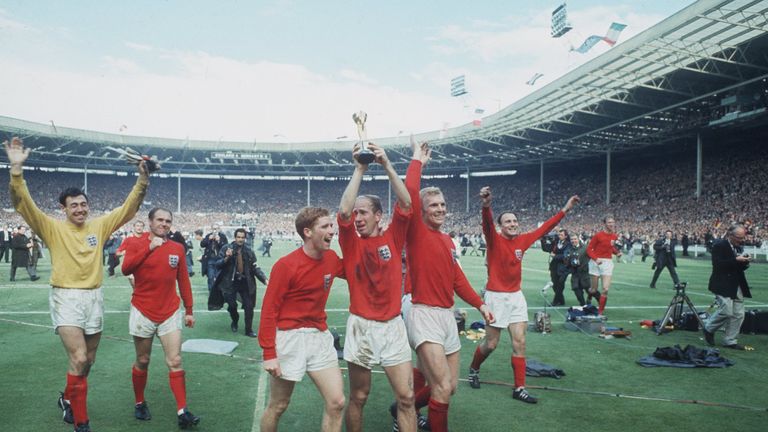1966 was the glorious year when the cup actually came home. It was handed to the proud English captain by the Queen at Wembley. Let us take a trip down memory lane.
It remains the greatest achievement in England’s footballing history. The Three Lions’ sole major championship came back in 1966, when Alf Ramsey, Bobby Charlton and Bobby Moore led their country to a first – and so far only – World Cup. The tournament on home soil was a landmark moment for the sport in Britain added further fuel to rivalries with Argentina and Germany
The biggest performer in the tournament, however, was arguably the Portuguese player Eusébio. Portugal came third after losing against England in semi-final and defeating Soviet Union in the third-place match. Just as in the previous World Cup would some matches display a great deal of unsportsmanship. Uruguay against West Germany became a scandalous match in which a Uruguayan player disputed with the police after being sent off. Brazil that had won the latest two championships gave a bleak performance and was out already in the group phase with Pelé half injured. The fact that the opponent players could neutralize the skills of Pelé with unjust tackles was a shame (and for Pelé itself it was reason enough for retired from international football, until he changed his mind two years later). Italy did an even bigger fiasco than Brazil, which was definite after a humiliating loss against North Korea. This was their last match in the group and lead to a missed advancement. North Korea would be close to follow-up with another sensation when taking a lead with three goals to nothing against Portugal in the quarter-finals. Their Portuguese opponents would, however, restore the order in the world of football by five consecutive goals. England, Argentina, Portugal, North Korea, West Germany, Uruguay, Soviet Union and Hungary would make it through the group phase and on to the knockout stage. In the Quarter-finals England, Portugal, West Germany and Soviet Union won their matches. And in the Semi-finals, England & West Germany won. In the final England would beat West Germany in a dramatic and unforgettable match that needed extra time to separate the sides. Geoff Hurst did three of his teams four goals and became the first player scoring three times in a World Cup final. One of the most debated goals in World Cup history occurred after a shot by Geoff Hurst hit the crossbar and bounced down near the goal line. It was decided as over the goal line by the referee, but a debate would go on for decades afterwards if the ball was over the goal line or not. England 1966 was, by most accounts, a memorable tournament for various reasons.
![]()

